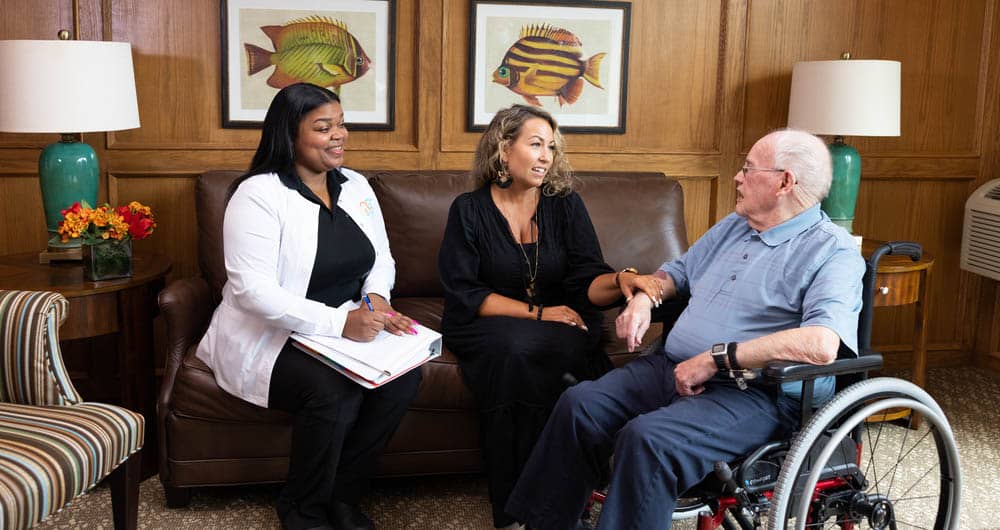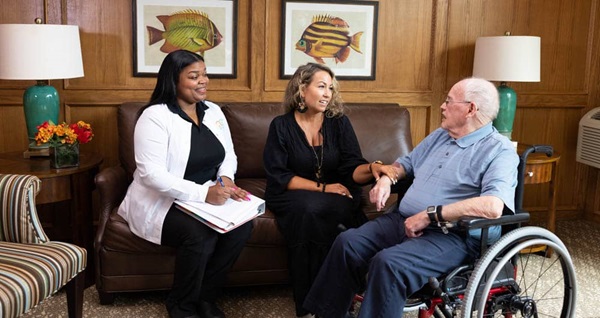

Help For Family Caregivers
Caring for a family member with dementia is a challenging journey, often filled with emotional and physical strains. While the primary caregiver bears the brunt of these challenges, other family members can provide meaningful support—even from far away. And assistance with caregiving doesn’t need to fall on the family members alone. There are many organizations and programs dedicated to aiding family caregivers.
One of the most impactful ways distant family members can contribute is through regular communication. Regular phone calls and video chats with both the caregiver and the family member with dementia can offer emotional support and lessen feelings of isolation. These conversations can also serve as a platform for the primary caregiver to share updates and concerns, ensuring that the family is collectively aware and responsive to the evolving needs of their loved one.
Long-distance relatives can also contribute financially. The costs associated with dementia care can be substantial, ranging from medical expenses to home modifications. Distant relatives can offer to cover some of these expenses or manage bills and finances online, which can ease the financial strain on the primary caregiver.
Beyond financial support, remote family members can also assist with the logistical aspects of care. This includes researching and coordinating local resources such as in-home care services, meal delivery, or transportation. These services can provide much-needed respite and support to the primary caregiver. Additionally, scheduling and keeping track of medical appointments and advocating for the family member’s health care needs are roles that can be managed from afar.
Respite care is necessary to give the primary caregiver a break. Long-distance family members can arrange for professional respite care servicesor plan visits to take over caregiving duties temporarily. Emotional and social support is also essential. Regular encouragement in the form of care packages or thoughtful gifts and virtual family gatherings can help maintain family bonds and provide emotional support to both the caregiver and the person with dementia.
Investing in assistive technology can be a game-changer. Tools like emergency response systems, in-home sensors and cameras, wearable technology, and health monitoring apps can help ensure the safety of the family member with dementia and provide peace of mind to the caregiver and long-distance family members. Locator devices can help find misplaced items. Virtual assistants can answer questions or help create a smart home system to control lighting, play music, or adjust the temperature.
There are also various programs and support services available to family caregivers. Organizations like the Alzheimer’s Association offer educational resources, support groups, and guidance on care strategies. Government programs and nonprofit organizations may provide financial assistance, counseling services, and access to community-based support, such as adult day centers or home health aides. The United States Department of Veterans Affairs has programs that allow family caregivers to be compensated for care provided to a veteran.
The role of long-distance family members in dementia care is multifaceted and invaluable. From emotional and financial support to logistical assistance and leveraging community resources, there are numerous ways to support the primary caregiver. With a collaborative approach, the caregiving journey can be more manageable and less isolating for all involved.



